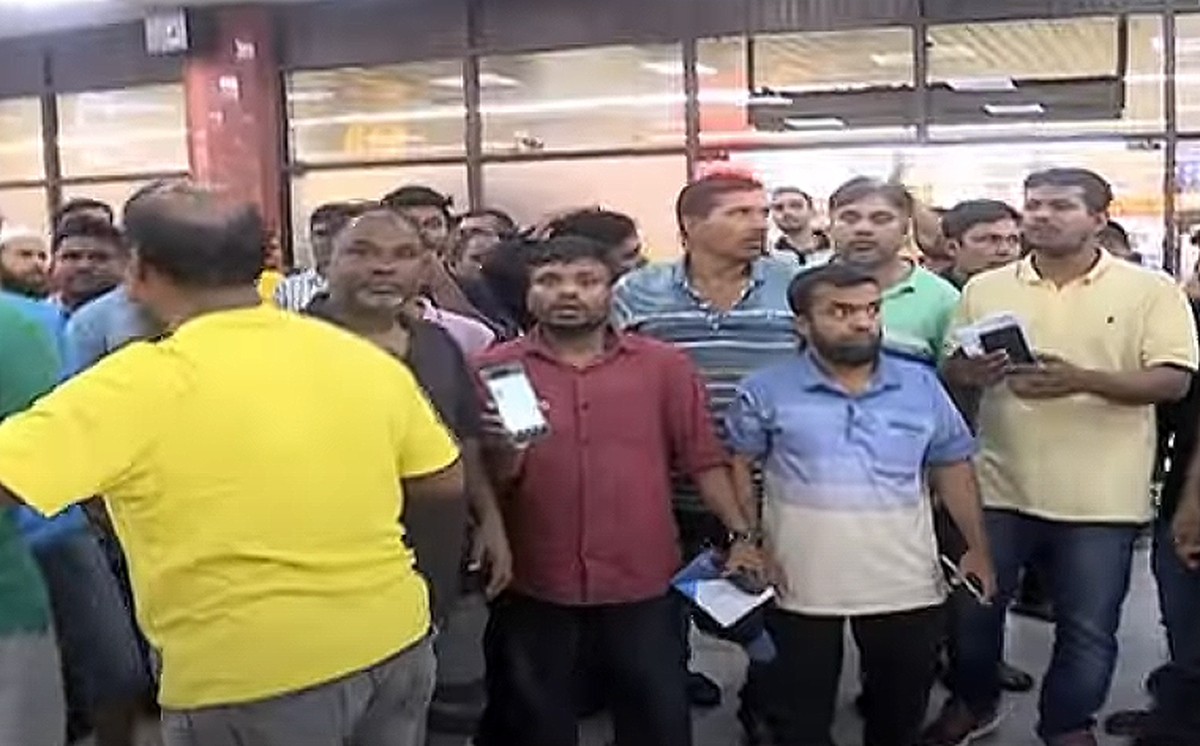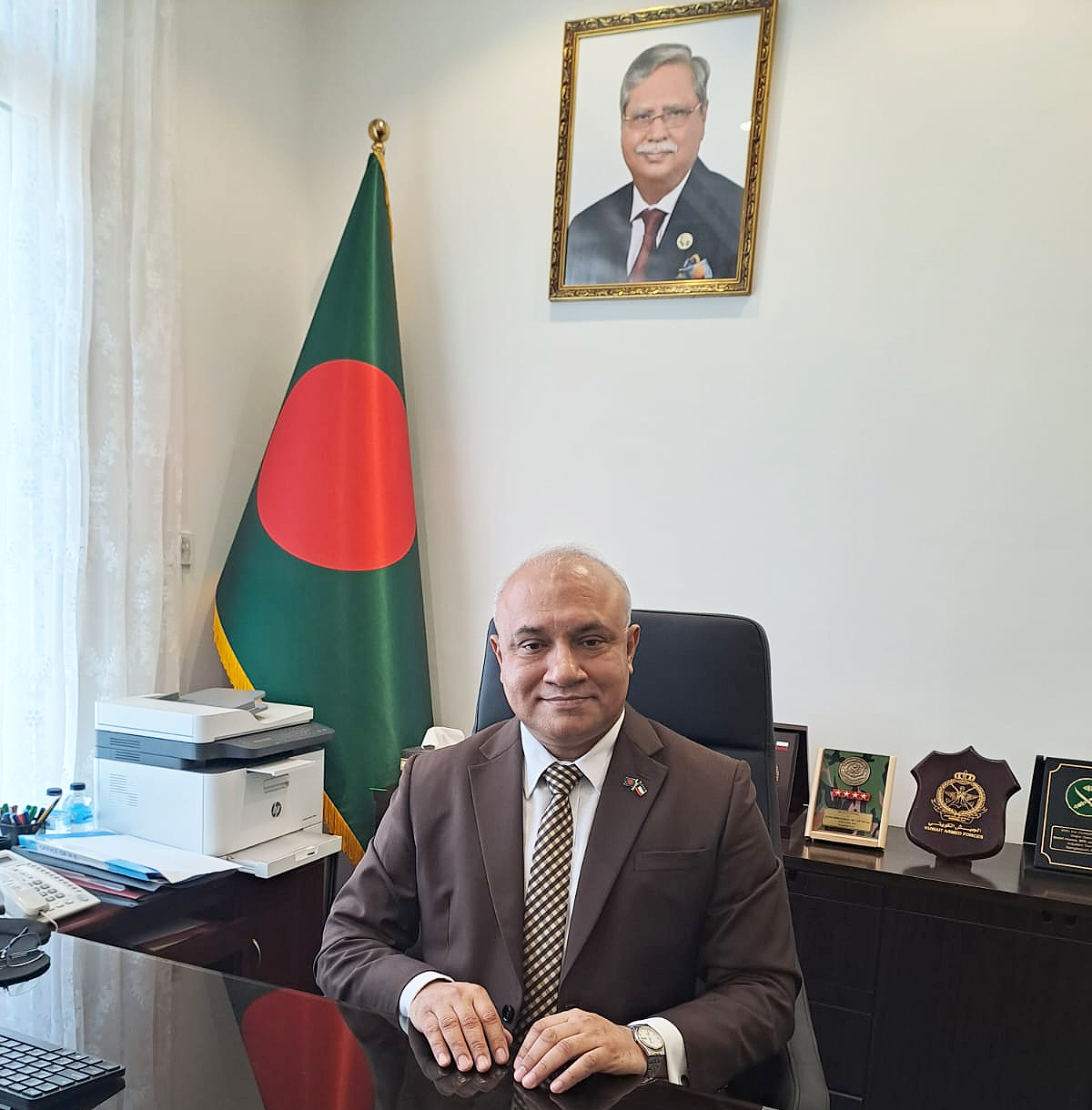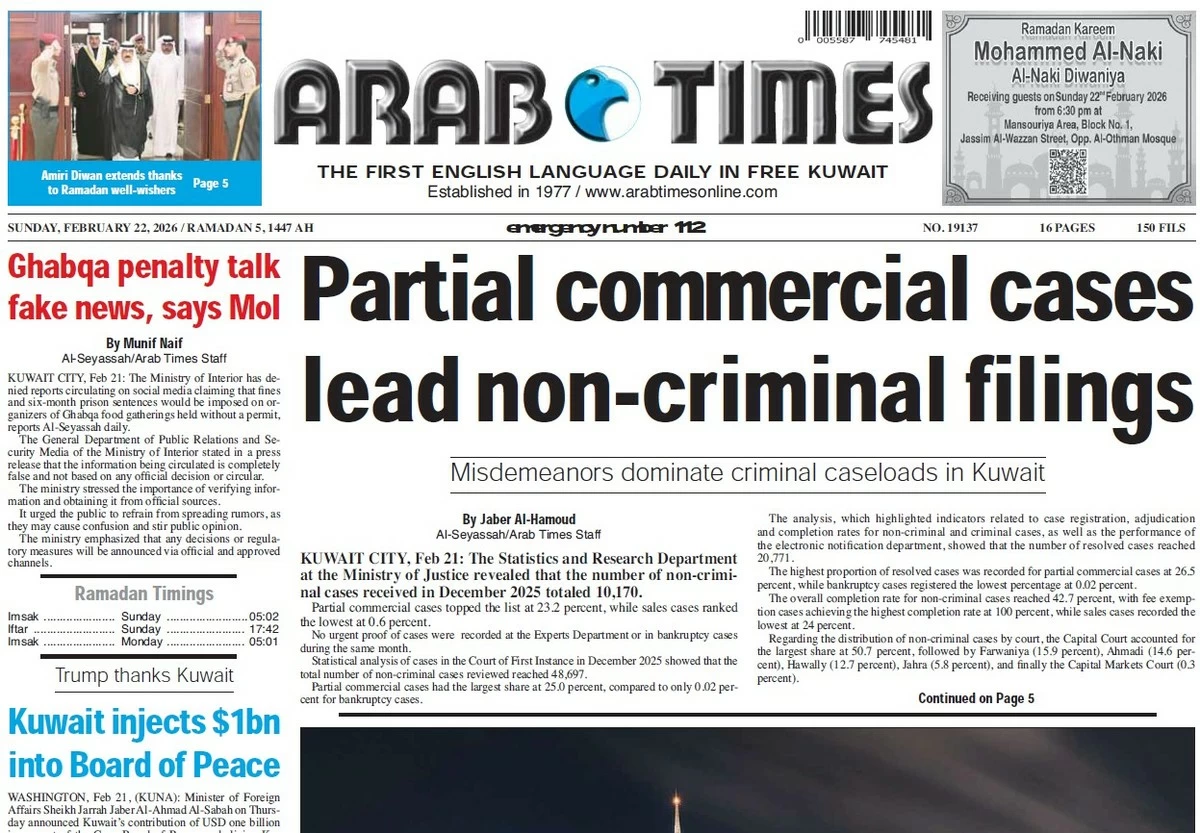07/08/2025
07/08/2025

In the aftermath, Al-Seyassah/Arab Times met with the envoy of Bangladesh and the embassy’s labor wing chief to investigate the chain of events that led to the deportation of 127 Bangladeshi nationals, highlighting yet another grim chapter of migrant workers. Al-Seyassah/Arab Times has since launched an in-depth investigation into the matter. In an exclusive interview, the Bangladesh Ambassador to Kuwait, His Excellency Major General Syed Tareq Hussain, offered fresh insight into the troubling episode.

The controversy centers on a Kuwaiti- based company that has a history of delaying employee wages. A similar situation occurred in November 2024, when the same company failed to pay salaries, prompting workers to reach out to the Bangladeshi Embassy. At that time, intervention by the embassy resulted in all dues being cleared.
However, from March to July this year, workers again went unpaid. The company assured the workers that they would be paid but from one month it went to 5 months unpaid, hence this time the workers chose not to approach their respective embassies or the Public Authority for Manpower, opting instead to head straight to the local police station – a decision that proved costly. In Kuwait, the law strictly prohibits expatriates from participating in mass protests. Instead, they are advised to report grievances to their respective embassies and, in cases of labor disputes, file complaints with the Public Authority for Manpower.
On July 27th, around 8:30 p.m., Mr. Mohammed Abdul Hussein, the labor wing in-charge at the Bangladeshi Embassy – well known for his regular visits to worker accommodations — was alerted to the unfolding crisis and began closely tracking the situation. The embassy, responsible for safeguarding the interests of more than 300,000 Bangladeshi workers in Kuwait, responded swiftly to the incident.
A formal petition was filed with the Kuwaiti authorities, and the company owner was contacted. He agreed to pay one month’s salary immediately and promised to settle the remaining dues over three installments. However, the workers, already frustrated and disillusioned, rejected the offer.
The Bangladeshi Embassy urgently appealed to the Ministry of Interior, the Ministry of Social Affairs, and the Director General of the Public Authority for Manpower, requesting a halt to the deportations. The embassy stressed that the workers were unaware of Kuwaiti legal procedures and that their deportation without compensation would be a grave injustice.
Despite assurances that salary payments would be processed on July 28th and 29th, the situation escalated rapidly. On the night of July 30th, the embassy received a call from one of the workers en route to the airport, confirming they were being forcibly deported without even allowing them to collect their belongings from their residence.
In response, officials from the labor wing of the Bangladeshi Embassy rushed to the airport to offer moral and legal support. Workers were urged to make a Power of Attorney as soon as they reached Bangladesh, authorizing the embassy or a trusted representative in Kuwait to pursue their outstanding wages and collect their belongings on their behalf.
Repeated attempts to contact the company during the deportations were met with silence.
Ambassador Hussain has since taken the matter up with senior Kuwaiti officials, including the Ministry of Interior and the Director General of the Public Authority for Manpower, as well as the company’s management. (Meeting is scheduled this week) The Ambassador stated that the embassy bears the responsibility of ensuring that deported nationals and their families receive any unpaid wages, recover their personal belongings, and verify whether those deported have been blacklisted or banned from reentering Gulf countries. The embassy is also in touch with those who are deported.
The Bangladeshi Embassy in Kuwait holds monthly public meetings where expatriates can voice their grievances. Workers may also contact the mission directly via email – available on their official website: https:// kuwait.mofa.gov.bd. The Ambassador personally addresses many of these cases, particularly those involving unpaid wages or passports withheld by companies.
In several past instances, the embassy has successfully resolved numerous disputes by warning errant sponsors that failure to comply with labor laws could lead to their companies being blacklisted from future manpower agreements with Bangladesh.
Furthermore, newly arrived workers are briefed on Kuwaiti labor regulations through information booklets and orientation sessions organized by the embassy.
As the situation continues to develop, attention now turns to whether the affected workers will receive their long-overdue wages and if the deported Bangladeshi nationals will be allowed to return to Kuwait for employment in the future, in the spirit of continued cooperation and mutual respect between the two nations.
By JCF Al-Seyassah/Arab Times Exclusive


